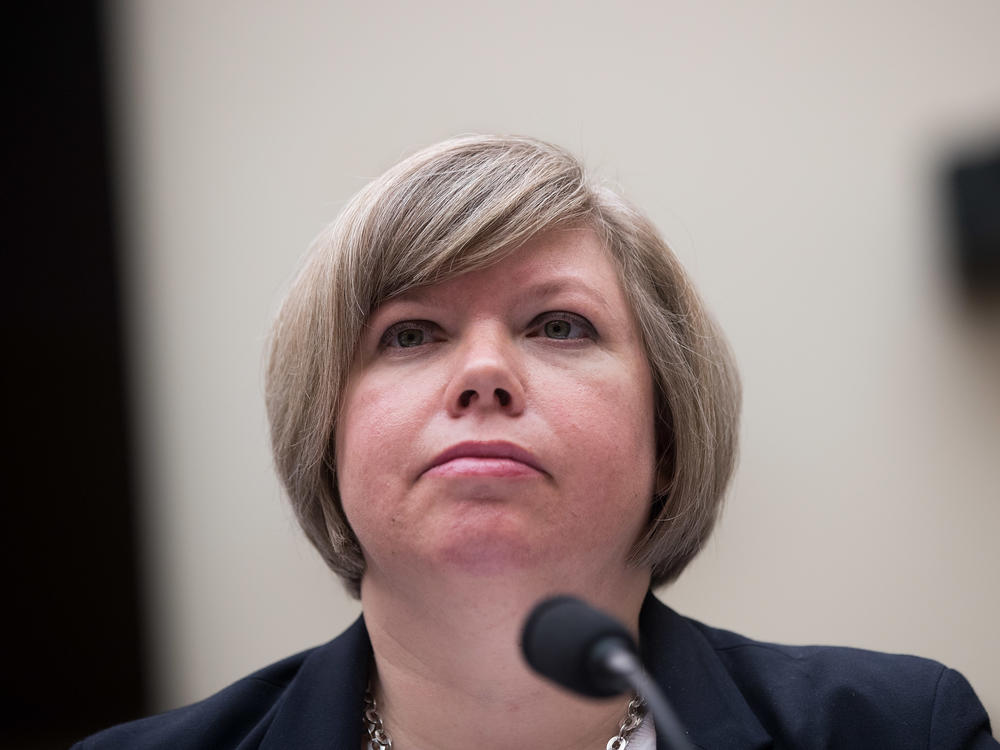Section Branding
Header Content
Government Watchdog Says Aid For Migrants Misspent By Border Agency
Primary Content
A year after Congress approved emergency humanitarian funds meant to benefit asylum-seekers apprehended along the border with Mexico, a government watchdog report released Wednesday finds that some of that money got spent instead on things from dirt bikes to dog food to security camera systems.
The title of the new U.S. Government Accountability Office report neatly sums up its stern message to the Department of Homeland Security's Customs and Border Protection agency: "CBP Needs to Increase Oversight of Funds, Medical Care, and Reporting of Deaths."
The report follows a legal finding by the GAO in June that by using that emergency funding to buy items other than the "consumables and medical care" for which it was meant, CBP had violated what is known as the "purpose statute."
The watchdog agency informed the CBP that if it does not find money elsewhere to offset those unauthorized purchases, "it should report a violation of the Antideficiency Act as required by law."
At a House Homeland Security Committee virtual hearing Wednesday on the GAO's findings, the Democrat who chairs that panel asserted that Border Patrol agents had spent money out of their own pockets to assist needy and sick migrants while the agency they worked for was misspending federal funds specifically earmarked for such assistance.
"There's something seriously wrong with this picture," Rep. Bennie Thompson, D-Miss., declared as he gaveled in the hearing, "just as there is something seriously wrong with the administration's approach to caring for migrants, including children."
At issue is $112 million for humanitarian aid that was part of a $4.5 billion border security emergency spending bill requested by the Trump administration. The unauthorized expenditure of some of that money was discovered by the GAO during a year-long review of CBP's practices along the southern border.
Rebecca Gambler, the GAO Homeland Security and Justice director who oversaw that agency's investigation, told the panel that CBP was still determining how much of the funds were misspent.
"They identified $13 million that they planned to adjust among accounts from last year's emergency supplemental," Gambler said, noting that some of the $112 million had been spent on items for which it was intended.
But DHS Inspector General Joseph Cuffari told the panel his office had only "a few weeks ago" begun an audit of how the humanitarian assistance money had been spent. Cuffari declined to say when that audit would be concluded, although he assured the lawmakers it would be done "as quickly as possible."
In its report, the GAO points out two factors it found had contributed to the violations in CBP's spending.
One was a lack of instructions on how that money should be spent. "CBP did not provide sufficient guidance explaining how offices and components could obligate funds for consumables and medical care," the report notes, "and, as a result, some offices and components may not have understood that there were limitations on how they could use those funds."
The other was a lack of oversight and supervision of how the funds were spent. The GAO found that of the five internal units that spent funds meant for humanitarian purposes, only one had reviewed whether its expenditures were consistent with how Congress intended that money to be used.
The four House Democrats widely known as "The Squad" — Alexandria Ocasio-Cortez of New York, Ayanna Presley of Massachusetts, Ilhan Omar of Minnesota, and Rashida Tlaib of Michigan — say the GAO report shows they were right to have opposed last year's emergency funding.
"Last year, the four of us voted against this CBP funding, clear eyed that CBP and ICE are rogue agencies that act to inflict harm on our communities and have a pattern of behavior of abuse and mismanagement of funds," the lawmakers say in a statement sent to Politico. "This year, the House must hold CBP accountable for their egregious violation of the law by withholding any further funding and imposing additional accountability measures with real consequences."
Copyright 2020 NPR. To see more, visit https://www.npr.org.

